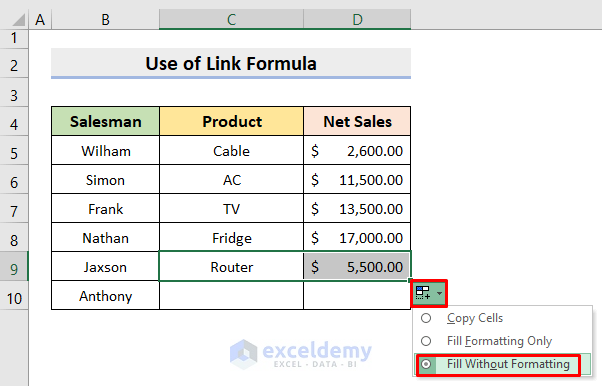5 Ways to Link Excel Sheets in 2023

Excel is one of the most versatile tools in the suite of Microsoft Office, allowing users to organize, analyze, and present data in a myriad of ways. Whether you're a financial analyst tracking sales, a project manager keeping tabs on project timelines, or a marketing specialist analyzing campaign data, the ability to link Excel sheets can significantly streamline your workflow. Here are five innovative ways to link Excel sheets in 2023, each catering to different needs and scenarios:
1. Using Hyperlinks


Hyperlinks can be used to quickly navigate between different parts of a workbook or to external files. Here’s how to create a hyperlink:
- Select the cell where you want the link.
- Go to the ‘Insert’ tab, then click on ‘Hyperlink.’
- In the dialog box, choose to link to another file or location within the current workbook.
This method is particularly useful when you want to provide quick access to related information or external resources.
2. External Reference Links

If you’re dealing with multiple Excel files and need to pull data from one into another, external reference links are your go-to:
- Start by opening both the source and destination workbooks.
- In the destination workbook, enter ‘=’ in a cell, then switch to the source workbook, click on the desired cell, and press Enter.
Here’s what you’ll see in the formula bar:
=[SourceFile.xlsx]Sheet1!A1
When linking multiple files, it's crucial to keep file names and paths consistent.
3. Power Query for Data Consolidation


Power Query is an Excel feature for data transformation and loading. Here’s how to use it for linking:
- Go to the ‘Data’ tab, select ‘Get Data’ > ‘From File’ > ‘From Workbook.’
- Navigate to your source Excel file, and load the data. Power Query will allow you to preview and transform this data before loading it into your main workbook.
| Benefit | Description |
|---|---|
| Automation | Automate data refresh with scheduled queries. |
| Transformation | Clean and reshape data as you import it. |

4. Excel Add-Ins

Excel add-ins like Invantive Query Tool or DataNovo provide more sophisticated linking options:
- Install the add-in from the Microsoft Store or their official website.
- Follow the add-in’s instructions to link data from multiple sources, including SQL databases, cloud storage, or other Excel files.
🔍 Note: These add-ins often require subscriptions or one-time payments.
5. Using VLOOKUP with Linked Sheets


VLOOKUP can be adapted to work with linked sheets:
- Set up an external reference to the lookup table in another sheet or workbook.
- Write your VLOOKUP formula to reference this linked data:
=VLOOKUP(A1,[SourceFile.xlsx]Sheet1!$A$1:$B$100,2,FALSE)
Ensure the source file is accessible to prevent errors.
These methods illustrate the evolution of Excel, enhancing its capability to handle data linking in more complex and automated ways:
Each approach has its strengths, tailored to different use cases:
- Hyperlinks for direct navigation.
- External references for data pulling.
- Power Query for transformation and consolidation.
- Add-ins for advanced linking.
- VLOOKUP for data lookup across sheets.
By leveraging these methods, you can efficiently manage large datasets, ensure data consistency across multiple files, and simplify the process of analysis and reporting. Whether you're dealing with sales figures, project timelines, or financial statements, mastering how to link Excel sheets will undoubtedly make your work more efficient and accurate.
What are the benefits of linking Excel sheets?

+
Linking Excel sheets reduces redundancy, improves data consistency, and simplifies updates. It allows for real-time data analysis across multiple files or worksheets.
Can linked sheets cause performance issues?

+
Yes, especially if you’re linking large datasets or numerous files. This can slow down Excel’s performance due to increased file size or the complexity of data connections.
What happens if a linked file is moved or renamed?

+
The links will break, causing errors in your Excel workbook. You’ll need to re-establish the links by updating the file paths or by using Excel’s ‘Edit Links’ feature.



